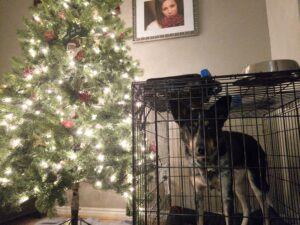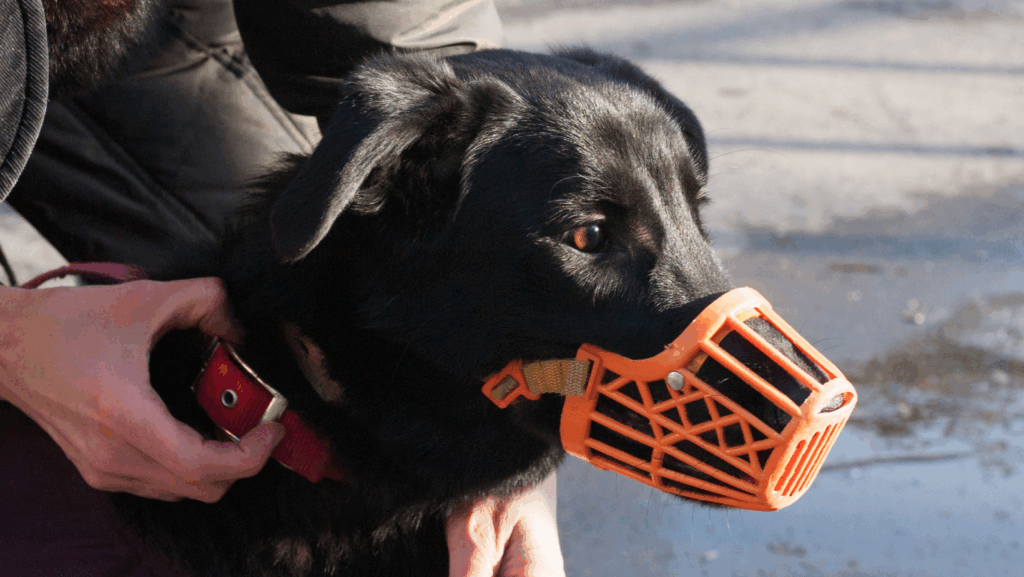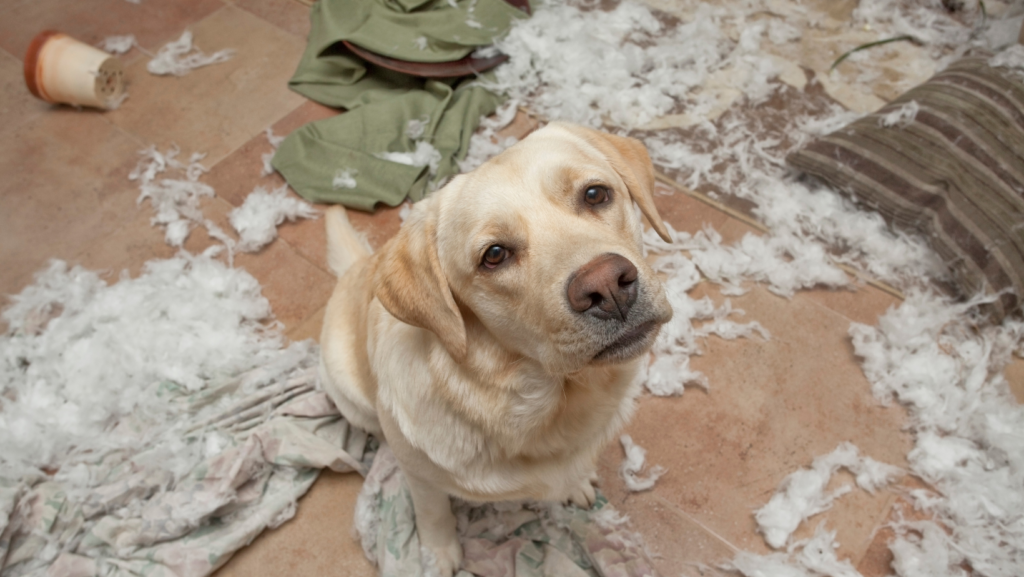It’s Christmas morning, and little tykes with rosy cheeks and fluffy heads scamper down the hallway. Before you can catch them, it’s a snowstorm of wrapping paper as they tear into their presents.
But wait…there’s ONE more box. What could it be?
Piercing screams of delight fill the room as a soft, downy head peeks over the edge of the box. Big or small, spotted or patchy…a puppy is pulled from the box and squashed in hugs by toddler arms.
“Thank you, Mommy!” they cry, as all other presents are forgotten in lieu of this newborn canine. Hearts are happy, and laughter is abundant as the rest of the day is spent oohing and aahing over this new life form. A name is picked…a collar is bestowed on the furry neck, and your family has officially grown by one member. Life is perfect.
The first couple months with the puppy are wonderful days. Potty training is sometimes frustrating, but he catches on quickly and soon enough accidents are a thing of the past. Your pup learns to explore, and is the cutest thing EVER as he races around in the snow and plays with the kids in the house.
But about 4 months in, you notice something strange taking place. Your puppy has developed behavior that you don’t want in your home. Maybe it’s nipping the kids, chewing the furniture or jumping on guests. “Oh well,” you think “he’s young enough that I can just take away what he has…he’ll eventually grow out of it.” And you move on.
7 months in, and things are not going so smoothly. His unwanted behavior is now what you call unwanted habits.
He’s big enough that when he gets your socks you can’t easily chase him down to get them back. Your new $1500 couch you bought for Christmas? Well…you’re never going to get any resale value now with all those teeth marks.
That crate you didn’t want to use to take away your puppy’s freedom?….now it’s a migraine yielding contraption from the howls of your pup when you HAVE to use it.
And what happened to the kids playing outside and taking him for walks? When did THAT stop? Did it stop because he pulls so hard on the leash that your 4-year-old got a bloody nose from being pulled over? Or did the walks stop because YOU were the only one walking him, but now life is too busy to handle that responsibility?
Then comes the day when your Christmas puppy growls and nips someone, or lunges and barks at your neighbor, or bites the mailman. You apologize to the mailman, and feel frustrated at your not-so-new pup. Into the crate he goes as punishment.
As the weeks go by, you realize your pup (now dog) is spending most of his time in the crate because his behavior is so out of control. You feel guilt and frustration that you want to help fix your dog, but there’s no time for him now. No one really pays him any attention anymore.
What a sad, depressing story. Why would someone even blog about this!?
But wait! There’s a solution! And a REALLY easy one, too! TRAIN your Christmas puppy!
Enroll them in a puppy program at your local pet store. Find a balanced personal trainer for some one-on-one lessons. Search YouTube and train your puppy yourself. And seek professional help when you run into a problem you don’t have the knowledge to solve yet.
Would it shock you to know that I fall into the group of people that got a Christmas puppy…and didn’t train him? And that I did it TWICE? That I’ve experienced ALL of the above problems (and more) and my story actually turned out happily ever after? Click here to read my inspiring story.
You love your pup and your pup loves you. It’s the BEST thing in the world to see your whole family thrive as they all participate in training. It’s exciting and rewarding to watch your pup learn and grow.
Experience the joy of being able to take your pup with you on vacations, camping trips, and family gatherings. Have the joy of off-leash walks (where appropriate) with the confidence that your dog will come when called.
My favorite thing to do with our obedient dogs? Take them with us everywhere we go, especially if the stores we shop at are pet-friendly.
Your Christmas puppies don’t HAVE to become Christmas problems. They can be a gift that keeps giving joy for many, many years.





